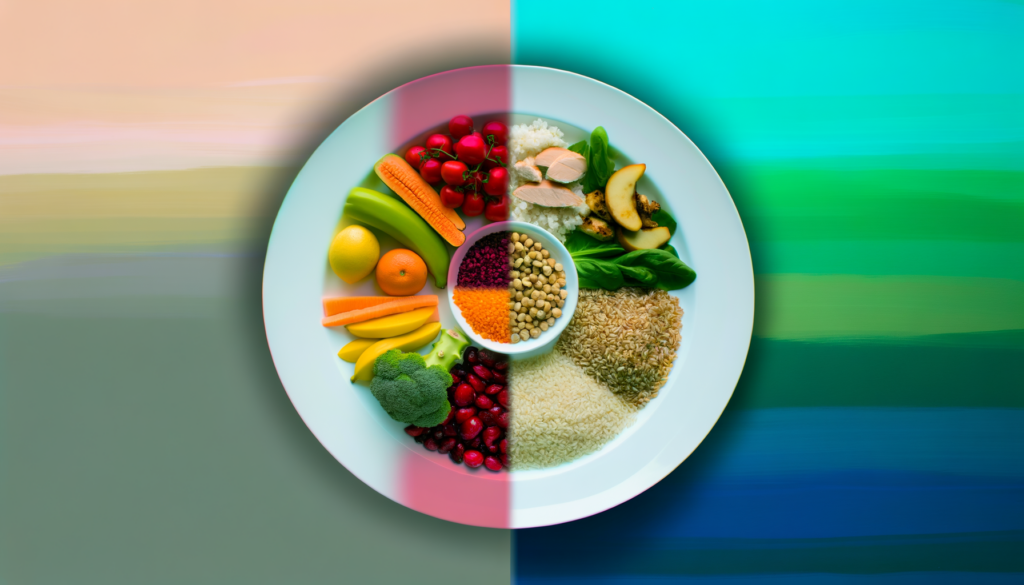Enhancing Client Success with Calorie Tracking in Online Fitness Coaching
Integrating calorie tracking into your online fitness coaching can be a game-changer for both you and your clients. This practice not only enhances the effectiveness of your health and wellness initiatives but also provides a comprehensive approach to achieving specific fitness goals. Here’s how you can seamlessly integrate calorie tracking into your online coaching programs.
Understanding the Importance of Calorie Tracking
Calorie tracking is fundamental to any fitness program, as it helps individuals monitor their daily calorie intake and expenditure. This practice is crucial for achieving health goals such as weight loss, muscle gain, or maintaining overall well-being. By using calorie counter apps and integrating them with fitness trackers, participants can gain a comprehensive understanding of their nutritional habits and make informed decisions about their diet and exercise routines.
Choosing the Right Calorie Counter App
Selecting the appropriate calorie counter app is essential for successful integration into your fitness program. Here are some key factors to consider when choosing an app:
Features: Look for apps that offer extensive food databases, barcode scanners, and detailed nutrient information. Apps like MyFitnessPal and Carb Manager are highly recommended due to their comprehensive features and user-friendly interfaces.
User-Friendliness: The app should be easy to use, with features like photo logging and barcode scanning to facilitate consistent tracking. Checking reviews on app stores can provide insights into an app’s functionality and user satisfaction.
Integration Capabilities: Ensure the app can sync with popular fitness trackers and devices, such as Fitbit, Apple Watch, and Garmin, to track steps, calorie burn, and other health metrics.
Implementing Calorie Tracking into Your Fitness Program
Once you have selected a suitable calorie counter app, it’s time to integrate it into your fitness program. Here are some steps to follow:
1. Set Up Client Goals: Use the app to set up daily calorie and macronutrient goals for your clients. This can be done manually or automatically based on client attributes such as age, gender, height, weight, body fat, activity level, and goals.
2. Track Client Progress: Encourage clients to log their meals daily. This can be done through the app’s interface, and the data can be accessed by you to monitor their progress and provide feedback.
3. Integrate with Other Tools: Many apps integrate with other health and fitness tools, such as MyFitnessPal and Cronometer, allowing for a more holistic approach to health and fitness coaching.
Real-World Examples and Case Studies
Several real-world examples illustrate the effectiveness of integrating calorie tracking into fitness programs:
MyFitnessPal Integration: MyFitnessPal has been successfully integrated into various fitness programs, allowing users to track their food, fitness, and fasting habits, and sync the data with over 35 apps and devices. Users have reported significant improvements in their health and fitness goals, such as weight loss and muscle gain.
Gold’s Gym SoCal Program: Gold’s Gym SoCal has seen positive outcomes by incorporating calorie counting into their fitness programs. Participants use apps to track their macronutrients and sync the data with their exercise routines, leading to better goal achievement and overall health improvements.
Evaluating the Success of Calorie Tracker Integration
Regular evaluation is essential to determine the effectiveness of calorie tracker integration in your fitness program. Here are some key aspects to consider:
Participation Rates: Monitor the number of participants actively using the calorie counter app and track their engagement levels over time.
Health Outcomes: Analyze the impact of calorie tracking on health outcomes, such as weight loss, improved body composition, or enhanced overall well-being.
Goal Achievements: Track the progress of participants in achieving their specific health goals and adjust the program accordingly.
The Role of Digital Nutrition Tools in Online Coaching
Digital nutrition tools are crucial for online coaching, as they provide a platform for clients to track their nutrition and for coaches to monitor and provide feedback. Here’s how these tools can enhance your coaching services:
Nutrition Tracking: Tools like TrueCoach and Everfit allow you to set custom calorie, macro, and nutrition plans for your clients. These tools also integrate with popular apps like MyFitnessPal, enabling seamless tracking and monitoring.
Habit and Lifestyle Coaching: Beyond nutrition, these tools often include features for habit and lifestyle coaching, such as meal photos, meal plans, and custom daily habits. This holistic approach ensures that clients are supported in all aspects of their health and fitness journey.
Conclusion and Next Steps
Integrating calorie tracking into your online fitness coaching can significantly enhance the effectiveness of your health and wellness initiatives. By selecting the right calorie counter app, implementing it effectively, and motivating participants, you can create a robust and engaging fitness program. Remember to evaluate the success of your integration regularly to make necessary adjustments and ensure the program’s continued effectiveness.
If you are looking to enhance your fitness program with calorie tracking, consider using tools like the Calorie Calculator Cloud to attract visitors and generate new leads. This widget can help you provide valuable resources to your audience, making your fitness program more appealing and informative. Explore the Calorie Calculator Plans to find the best fit for your needs.
By combining the insights from this post with the right tools and strategies, you can create a comprehensive fitness program that supports participants in achieving their health goals efficiently.








